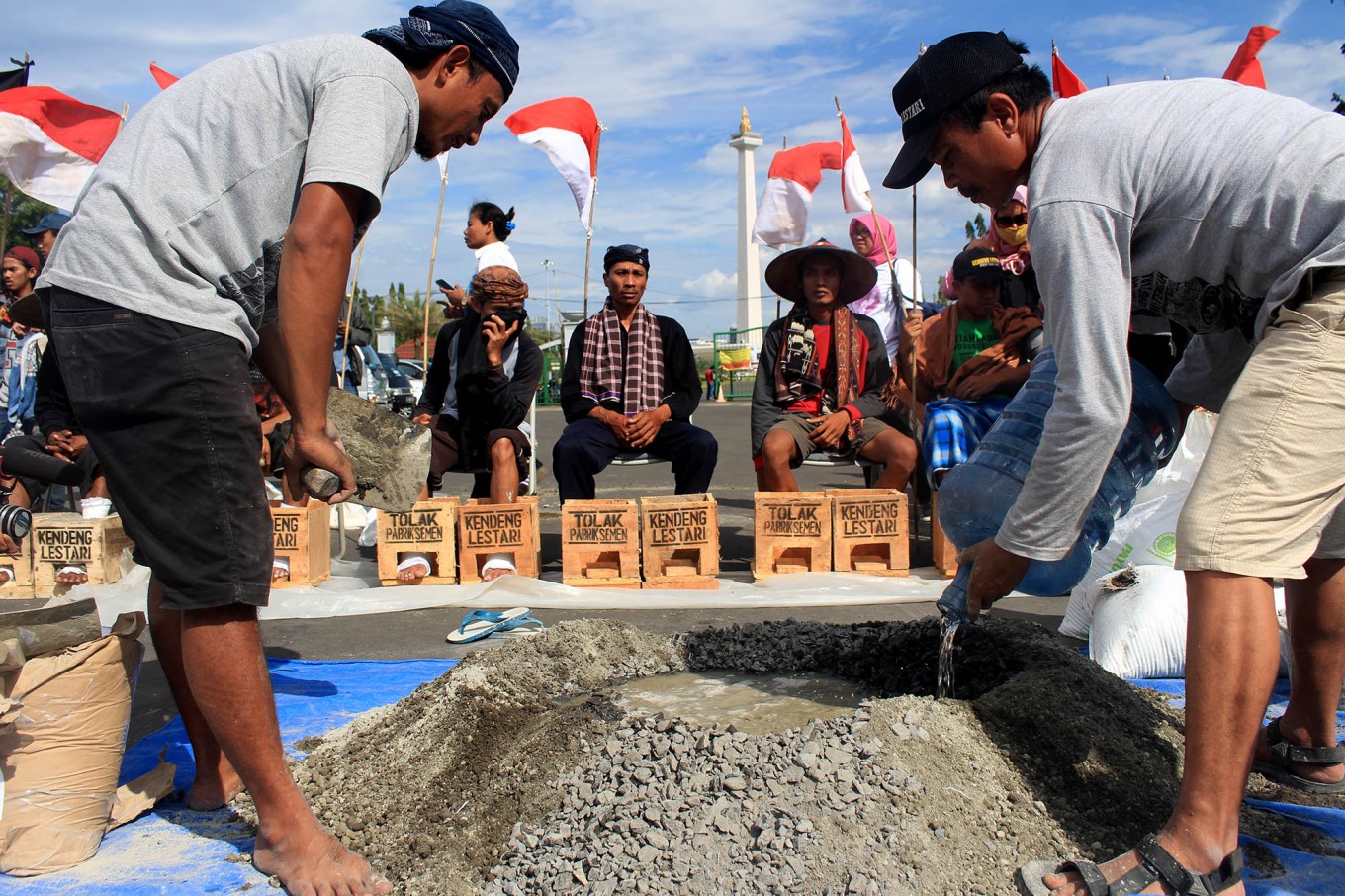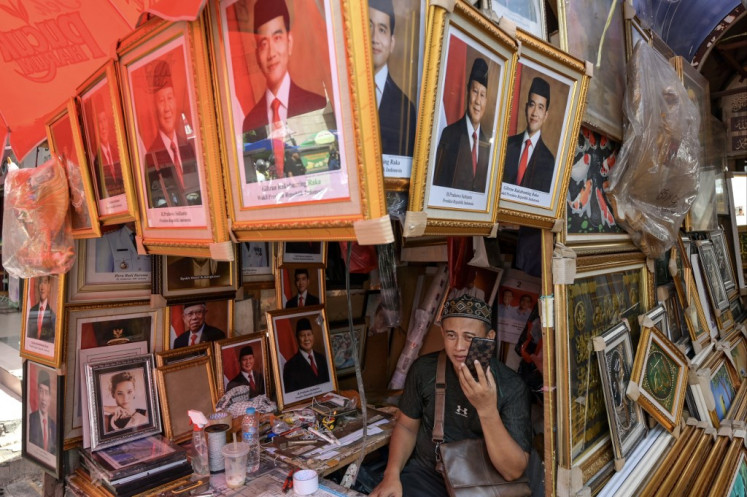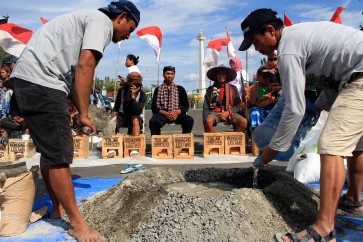In search of good mining practices
An in-depth study by the Research Center for Politics and Government in four resourcerich regions has revealed that local communities living near mining sites are mostly marginalized, since they have to overcome impacts of mining operations that harm their livelihoods.
Change Size
 Kendeng farmers prepare to put their feet into concrete blocks in front of the Merdeka Palace, Jakarta, on March 15, to protest the construction of state cement manufacturer Semen Indonesia's factory in Rembang, Central Java. (JP/Bagas Rahadian)
Kendeng farmers prepare to put their feet into concrete blocks in front of the Merdeka Palace, Jakarta, on March 15, to protest the construction of state cement manufacturer Semen Indonesia's factory in Rembang, Central Java. (JP/Bagas Rahadian)
T
he recent protests outside the State Palace against the construction of a cement factory in Rembang regency, Central Java, which saw dozens of Kendeng women encase their feet in concrete, is just the tip of the iceberg in problems involving mining governance in Indonesia.
The rally indicated that the granting of mining licenses remains a problem in this country. Indonesia’s decentralized mining system shows that the delegation of the authority to local administrations in issuing mining licenses fails to collect meaningful input from nearby communities.
The problematic cement factory adds to cases of how the decision chain in the development of natural resources ignores the interests and concerns of local communities.
So-called good mining practices are merely based on the ability of the operators of mines to fulfill their investment obligation. This license mechanism does not consider the impacts and risks or the cost to the communities.
An in-depth study by the Research Center for Politics and Government in four resourcerich regions has revealed that local communities living near mining sites are mostly marginalized, since they have to overcome impacts of mining operations that harm their livelihoods.
The granting of a mining permit is a crucial part of the decision chain in the development of natural resources because it is supposed to take into consideration people’s aspirations as an important aspect in deciding whether or not mining activities should be approved.
Through the clear guidance on free prior informed consent (FPIC), a government is supposed to deliver transparent information not only about the benefits but also risks and impacts if the mining operation is realized. Nonetheless, in many practices — despite Ministerial Environmental Regulation No. 8/2013 on environmental permits — the mechanism has often discouraged local knowledge of natural resources management.

















